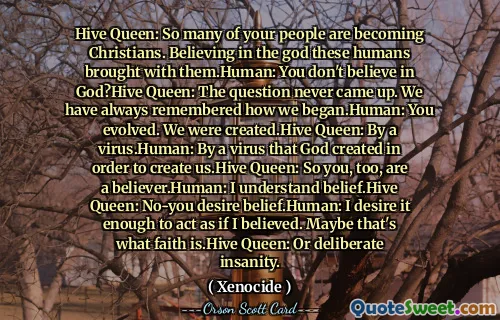It is often tragic to see how blatantly a man bungles his own life and the lives of others yet remains totally incapable of seeing how much the whole tragedy originates in himself, and how he continually feeds it and keeps it going. Not consciously, of course-for consciously he is engaged in bewailing and cursing a faithless world that recedes further and further into the distance. Rather, it is an unconscious factor which spins the illusions that veil his world. And what is being spun is a cocoon, which in the end will completely envelop him.
In C.G. Jung's "Aion," he reflects on the often tragic oversight individuals have regarding their own lives and the impact they have on others. Many people struggle to recognize that the source of their misfortune often lies within themselves. Instead of facing their own contributions to their difficulties, they direct their frustrations toward the world around them, blaming external circumstances while failing to acknowledge their own role in creating a web of misunderstandings and conflicts.
This unconscious behavior forms a protective cocoon that isolates individuals from reality, leading to a cycle of suffering that they perpetuate without awareness. Jung emphasizes that it is not a conscious choice to foster this tragedy; rather, it is an automatic response driven by unexamined internal dynamics. The challenge lies in uncovering these hidden patterns and understanding how personal illusions affect one's perception and experience of life.
